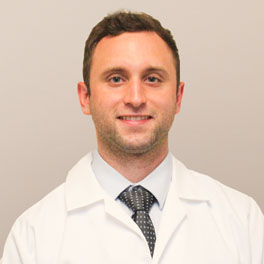
Advice from an Expert: Eye Strain in a Digital Age
Board Certified Ophthalmologist at Crystal Run Healthcare
From ‘doom-scrolling’ on smartphones to binge-watching television, people have more than enough access to screens throughout their daily lives. While extra screen time does not necessarily mean a visit to an Ophthalmologist is needed, it does mean your eyes are exposed to more situations that cause eye fatigue, dryness, and more. Here’s what to watch out for in digital eye strain if you experience a lot of screen time and, if you’re a parent, what to look out for in your kids.
“Digital” Eye strain
With the widespread use of computers, tablets, and smartphones, increased screen time has many people complaining of chronic eye strain or fatigue (this is called asthenopia)[i]. In some cases, people will even experience burning, tearing, reduced vision quality, blurriness, headaches, or brow aching. This is due to a few problems that arise from screen use.
Eye Dryness
Humans naturally blink at a certain frequency. We blink without having to think about it. This underappreciated phenomenon has a very important role in preventing our eyes from drying out. Blinking does a lot for our eye health. It stimulates tear secretion, helps to evenly distribute tears, and drains old tears into the nose (which becomes mucus). When we strongly focus on something for a long time, like a screen, our blink rate can be less than half what we normally blink. This will dry our eyes out. Not only do dry eyes not see well, but they also don’t feel good.
If you have dry eyes a lot, one of the first steps to help with dry eyes is to blink more. If you cannot have less screen time, try to take some breaks to allow your eyes time to recover and re-lubricate themselves. Even if you can’t lessen your screen time during the day, it is a good idea to power down early and avoid staying up late at night in front of a screen. Aside from decreasing the amount you blink, the bright lights of screens also contribute to a feeling of wakefulness. If you sleep less, you may develop poor sleep habits like insomnia[ii]. Poor sleep habits have also been linked with eye dryness[iii]. So if you are staring at a screen all day and night, not only does your eye health suffer, but your sleep health as well.
Another treatment for dry eye is to get a good brand of lubricating eye drops or artificial tears. You should use them during or after long periods of screen time. There are many products and brands available over-the-counter but ask your eye doctor about which ones to use as each person may have different needs.
The Near Vision System
When humans read or look at something up close, like a phone screen or a book, multiple different muscles of the eye simultaneously contract. This is called our near vision system. Using a screen for a long time will engage the muscles of your near vision system repeatedly, and symptoms of eye strain or aching around the eyes can develop. This becomes truer the older we get.
When we are young our eyes have an almost limitless ability to use the near vision system and focus on objects very close to our face without fatigue. However, as we age this system for seeing up close gets weaker and weaker. By ages 45-50, your near vision system has weakened enough that you may find yourself moving something away rather than closer to see it better (presbyopia). Because very small text cannot be seen far away, magnifiers or “reading” glasses become required to enlarge words and overcome this unwelcomed gift of middle age. If you have reached this milestone, having the proper glasses prescribed can greatly reduce symptoms of eye strain related to reading up close on a screen.
Even if you have not yet reached this age, you can still reduce the demand on your near vision system. You can do this simply by moving your screens further away from your face. Try using larger font sizes or even bigger screens to help you achieve this. For example, place your computer further away from you or try reading articles and books on a larger tablet rather than your phone.
A Special Note on Children
While screen viewing has not been shown to cause any permanent eye damage in adults, important consideration must be given to children and the developing eye. When we are born, our eyes are too small, preventing normal vision. Our eyes grow slowly over time in a very precise manner to allow most children to see well by adolescence. However, this process can be disrupted. Evidence has emerged in recent decades that indicates increased use of screens is linked to higher rates of near-sightedness (myopia) in children[iv]. Once myopia develops it commonly becomes permanent and may progress or worsen in adulthood. Myopia has a life-long impact and is associated with a multitude of eye problems and diseases. The prevalence of myopia in children is steadily increasing throughout the world and most experts consider it to be at epidemic proportions[v]. While many factors are likely at play and exact causes are not yet known, it is almost certain that addressing screen use in children will play a critical role in combating this “myopia epidemic” in the decades to come.
Dr. Moscato is a part of Crystal Run Healthcare’s Ophthalmology team. Ophthalmology deals with the anatomy, physiology, and diseases of the eye. Ophthalmologists diagnose and treat both medical and surgical eye problems in patients of all ages. At Crystal Run, our ophthalmology team consists of highly skilled physicians who are fellowship-trained in anterior segment surgery (for cataracts and other eye problems) and glaucoma (a group of diseases that damage the eye's optic nerve and can result in vision loss and blindness). Our ophthalmologists offer complete medical and surgical eye care, from simple evaluations for eyeglasses to complex and delicate eye surgery.

Vincent Moscato, MD is a board-certified ophthalmologist at Crystal Run Healthcare. He earned his Medical Degree at the University at Buffalo, Jacobs School of Medicine and Biomedical Science in Buffalo, NY. He completed his Ophthalmology Residency at the Institute of Ophthalmology and Visual Science, Rutgers New Jersey Medical School in Newark, NJ, and his Internship in Preliminary Medicine at Mount Sinai Beth Israel in Manhattan, NY. He has clinical interests in comprehensive eye care and cataract surgery. Dr. Moscato is seeing patients in Goshen, NY, and Rock Hill, NY.

 Optum Radiology at Crystal Run Healthcare
Optum Radiology at Crystal Run Healthcare Same and next-day pediatric appointments
Same and next-day pediatric appointments